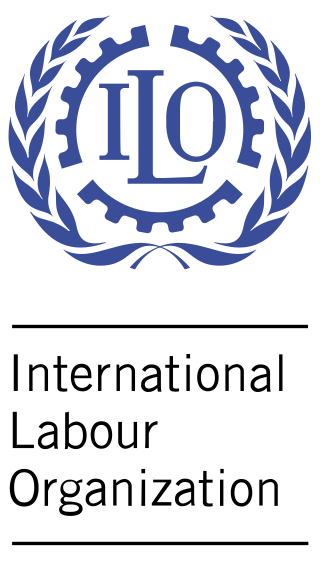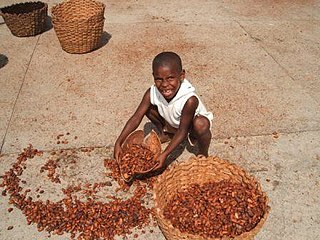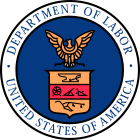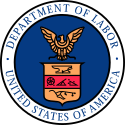
The International Labour Organization (ILO) is a United Nations agency whose mandate is to advance social and economic justice by setting international labour standards. Founded in October 1919 under the League of Nations, it is one of the first and oldest specialised agencies of the UN. The ILO has 187 member states: 186 out of 193 UN member states plus the Cook Islands. It is headquartered in Geneva, Switzerland, with around 40 field offices around the world, and employs some 3,381 staff across 107 nations, of whom 1,698 work in technical cooperation programmes and projects.
Labor rights or workers' rights are both legal rights and human rights relating to labor relations between workers and employers. These rights are codified in national and international labor and employment law. In general, these rights influence working conditions in the relations of employment. One of the most prominent is the right to freedom of association, otherwise known as the right to organize. Workers organized in trade unions exercise the right to collective bargaining to improve working conditions.

Lewis Baxter Schwellenbach was a United States senator from Washington, a United States district judge of the United States District Court for the Eastern District of Washington and the 5th United States Secretary of Labor.

The Harkin–Engel Protocol,[A] sometimes referred to as the Cocoa Protocol, is an international agreement aimed at ending the worst forms of child labor and forced labor in the production of cocoa, the main ingredient in chocolate. The protocol was negotiated by U.S. Senator Tom Harkin and U.S. Representative Eliot Engel in response to a documentary and multiple articles in 2000 and 2001 reporting widespread child slavery and child trafficking in the production of cocoa. The protocol was signed in September 2001. Joint Statements in 2001, 2005 and 2008 and a Joint Declaration in 2010 extended the commitment to address the problem.
Child labour in Botswana is defined as the exploitation of children through any form of work which is harmful to their physical, mental, social and moral development. Child labour in Botswana is characterised by the type of forced work at an associated age, as a result of reasons such as poverty and household-resource allocations. Child labour in Botswana is not of higher percentage according to studies. The United States Department of Labor states that due to the gaps in the national frameworks, scarce economy, and lack of initiatives, “children in Botswana engage in the worst forms of child labour”. The International Labour Organization is a body of the United Nations which engages to develop labour policies and promote social justice issues. The International Labour Organization (ILO) in convention 138 states the minimum required age for employment to act as the method for "effective abolition of child labour" through establishing minimum age requirements and policies for countries when ratified. Botswana ratified the Minimum Age Convention in 1995, establishing a national policy allowing children at least fourteen-years old to work in specified conditions. Botswana further ratified the ILO's Worst Forms of Child Labour Convention, convention 182, in 2000.
The global march against child labour came about in 1998, following the significant response concerning the desire to end child labour. It was a grassroot movement that motivated many individuals and organizations to unite and fight against child labor, not an annual march.
Prostitution in Colombia is legal, regulated and limited to brothels in designated "tolerance zones". Sex workers are required to have regular health checks. However, the laws are rarely applied and prostitution is widespread, partly due to poverty and internal displacement.
Prostitution in Chile is legal, subject to regulation, but related activities such as keeping brothels and pimping are prohibited. Several hundred women were registered as prostitutes with the National Health Service.
Prostitution in Nicaragua is legal, but promoting prostitution and procuring are prohibited. The minimum age for prostitutes is 18 years old. It was estimated in 2015 that there were around 15,000 prostitutes in the country.
Uganda is a source and destination country for men, women, and children trafficked for the purposes of forced labor and sexual exploitation. Ugandan children are trafficked within the country, as well as to Canada, Egypt, the United Arab Emirates, and Saudi Arabia for forced labor and commercial sexual exploitation. Karamojong women and children are sold in cattle markets or by intermediaries and forced into situations of domestic servitude, sexual exploitation, herding, and begging. Security companies in Kampala recruit Ugandans to serve as security guards in Iraq where, at times, their travel documents and pay have reportedly been withheld as a means to prevent their departure. These cases may constitute trafficking.
The Anti-Trafficking in Persons Act of 2003, officially designated as Republic Act No. 9208, is a consolidation of Senate Bill No. 2444 and House Bill No. 4432. It was enacted and passed by Congress of the Philippines' Senate of the Philippines and House of Representatives of the Philippines assembled on May 12, 2003, and signed into law by President Gloria Macapagal Arroyo on May 26, 2003. It institutes policies to eliminate and punish human trafficking, especially women and children, establishing the necessary institutional mechanisms for the protection and support of trafficked persons. It aims "to promote human dignity, protect the people from any threat of violence and exploitation, and mitigate pressures for involuntary migration and servitude of persons, not only to support trafficked persons but more importantly, to ensure their recovery, rehabilitation and reintegration into the mainstream of society."

Human trafficking is the trade of humans for the purpose of forced labour, sexual slavery, or commercial sexual exploitation.

Child labour in Bangladesh is significant, with 4.7 million children aged 5 to 14 in the work force in 2002-03. Out of the child labourers engaged in the work force, 83% are employed in rural areas and 17% are employed in urban areas. Child labour can be found in agriculture, poultry breeding, fish processing, the garment sector and the leather industry, as well as in shoe production. Children are involved in jute processing, the production of candles, soap and furniture. They work in the salt industry, the production of asbestos, bitumen, tiles and ship breaking.

In the United States, human trafficking tends to occur around international travel hubs with large immigrant populations, notably in California, Texas, and Georgia. Those trafficked include young children, teenagers, men, and women; victims can be domestic citizens or foreign nationals.
The United Nations Global Initiative to Fight Human Trafficking (UN.GIFT) is a multi-stakeholder initiative providing global access to expertise, knowledge and innovative partnerships to combat human trafficking.
Transnational efforts to prevent human trafficking are being made to prevent human trafficking in specific countries and around the world.
Executive Order 13126, formally titled Prohibition of Acquisition of Products Produced by Forced or Indentured Child Labor, is an executive order signed by Bill Clinton on June 12, 1999, to ensure federal agencies enforce laws regarding forced labor. It requires the US Department of Labor to maintain a list of products and their countries of origin that have been produced by forced child labor. Federal contractors who supply products on the list must prove they have made a good faith effort to determine if the products were produced under forced labor.
International labour law is the body of rules spanning public and private international law which concern the rights and duties of employees, employers, trade unions and governments in regulating Work and the workplace. The International Labour Organization and the World Trade Organization have been the main international bodies involved in reforming labour markets. The International Monetary Fund and the World Bank have indirectly driven changes in labour policy by demanding structural adjustment conditions for receiving loans or grants. Issues regarding Conflict of laws arise, determined by national courts, when people work in more than one country, and supra-national bodies, particularly in the law of the European Union, have a growing body of rules regarding labour rights.

Human trafficking in Southeast Asia has long been a problem for the area and is still prevalent today. It has been observed that as economies continue to grow, the demand for labor is at an all-time high in the industrial sector and the sex tourism sector. A mix of impoverished individuals and the desire for more wealth creates an environment for human traffickers to benefit in the Southeast Asia region. Many nations within the region have taken preventive measures to end human trafficking within their borders and punish traffickers operating there.






